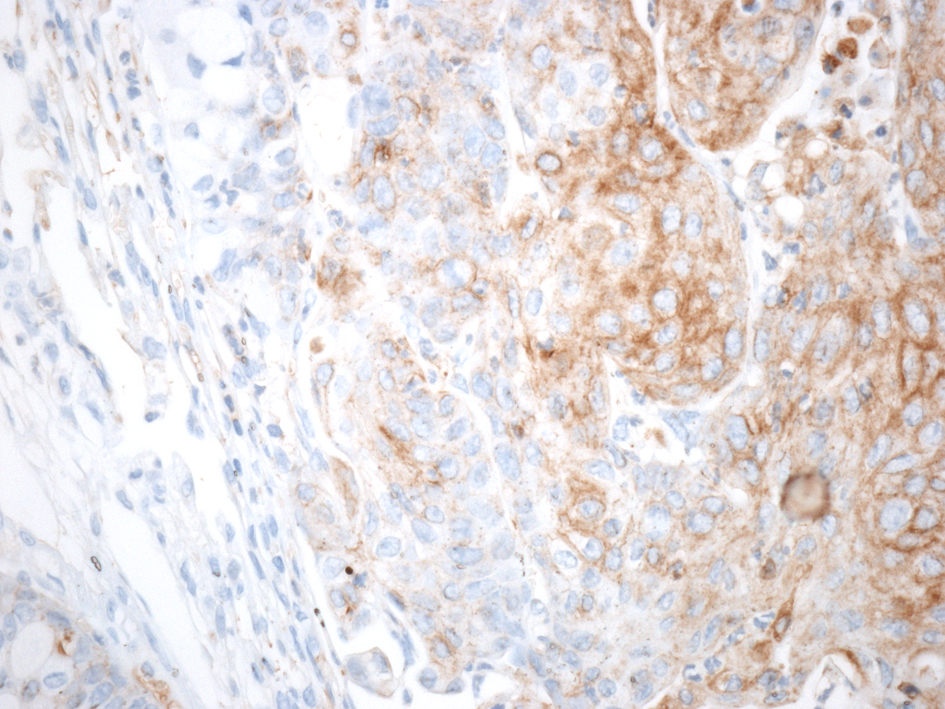
A CIC bioGUNE team led by Arkaitz Carracedo, PhD in Biology, Ikerbasque research professor, associate professor at the University of the Basque Country and researcher from the Spanish Cancer Research Network (CIBERONC), has shown that a specific combination of genetic alterations gives rise to lethal metastatic prostate cancer in experimental mouse models.
Prostate cancer is among the most common tumours worldwide. Despite its good prognosis, there is a group of patients who do not respond to treatment and may develop metastatic cancer and succumb to the disease. Understanding the factors involved in the development of this aggressive variant is fundamental for its prediction and treatment. To this end, experimental models that speed up the understanding of the biological processes underlying the disease are urgently needed.
The mouse model generated in CIC bioGUNE is an important step forward in the understanding of prostate cancer metastasis. In the words of Dr. Carracedo, "developing experimental models is an essential step in the diagnosis and treatment of cancer, as it enables us to study the disease in detail throughout its development". The research is published in the Journal of Experimental Medicine, a prestigious journal in the field of biomedicine.
Cancer emerges upon the accumulation of errors in our cells. These errors, or mutations, alter the function of genes, which are the functional units in our cells to perform their tasks in the body. Thanks to DNA sequencing, we have a better idea of which genes are malfunctioning in each cancer type. Dr. Carracedo explains: "Studies like the one in the Encyclopaedia of Cancer provide the raw material for understanding which mutations lead to the development of cancer, but then we need to understand what the specific impact of each of these errors is on the development of the disease. We can only do this work by generating experimental models".
As Dr. Carracedo explains, this discovery came about "as the result of an unexpected observation". In a research project led by Dr. Patricia Zuñiga and Ivana Hermanova, the group was studying the consequences of eliminating the gene LKB1 in prostate cells, which acts as an alarm when the cells run low on energy. They proposed that the absence of this gene in a mouse that develops cancer could lead to an energy crisis in the tumour, and thus serve as a treatment strategy. However, the mouse with no LKB1 in its prostate developed a highly metastatic and lethal disease. "It was then that we realised we were modelling the most aggressive form of prostate cancer in the mouse, and we set out to understand how this system works," Carracedo reveals.
Their research project was complemented with computer analyses using a cohort of more than 1,000 human prostate cancer specimens. The researchers also worked with prestigious oncologists in this field and studied the phenomenon using molecular and cellular biology techniques. Dr. Carracedo summarizes his discovery: "It took us 8 years to understand what was happening in this model of cancer. We realized that our model represents a variant of the disease that is diagnosed in a small percentage of patients. In addition, we were able to identify the particularities of how LKB1 works in prostate cancer, and were surprised to discover that this is a highly effective enzyme, capable of suppressing the development of metastasis using only 10% of its activity. In other words, the complete elimination of LKB1 is required to unleash the metastatic capacity of prostate cancer. This represents an important lesson for the cancer research community, and suggests that if we reactivate the function of LKB1 even partially with drugs, we this could exert strong antimetastatic activity".
This study brings to light the importance of deciphering the molecular characteristics of all cancer types in order to move towards personalized medicine. Personalized or precision medicine is included in the European strategy of smart specialization, or RIS3, and is one of the key action areas of the Department of Health of the Basque Government, funds from which have contributed to the development of this study. "This study is the culmination of a long research path, which has been supported by funds from the European Community, the Ministry of Science and the Spanish Association Against Cancer (AECC). In its later stage, the study also received support from the Mondravember and MovemBergara social groups, from the towns of Mondragón and Bergara, respectively. "All these stakeholders have played an essential role at different stages and in various activities of the project," Carracedo emphasizes. "The progress of biomedicine is rooted in research driven by curiosity. Researchers are looking for answers that enable us to understand the complexity of cancer. We do not always foresee the possible application of what we study, but this does not diminish the importance of our work. Applying the knowledge we generate may take months or decades, but only knowledge in its purest form has the potential to improve our lives and our society. We still need to convince our politicians and policymakers that investing in research is the key to creating a thriving, prosperous and healthy society. That is why we need stable, ambitious and strategic investment in research".
The CIC bioGUNE team has worked in close collaboration with José Ignacio López and Verónica Torrano, from the Pathology Service of Cruces Hospital and the University of the Basque Country, respectively. Other organizations from Spain and beyond have also participated in this study, including the Institute for Research in Biomedicine and the Bellvitge Biomedical Research Institute of Barcelona, the Autonomous University of Barcelona and the Institute for Cancer Research in London. In short, and as Dr Carracedo concludes: "For us this study exemplifies the collaborative work of basic and clinical research, integrating the use of cutting-edge technologies such as bioinformatics and genetic engineering."
.png)
